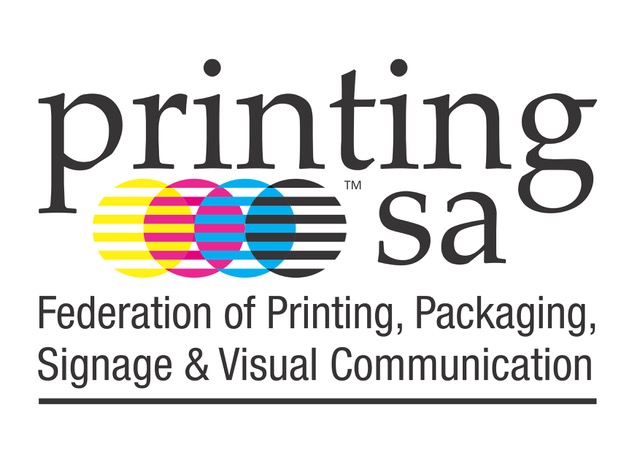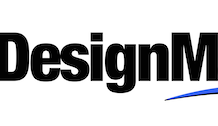Printing SA has relentlessly responded to the mounting concerns and queries of its members and the printing, packaging, signage and visual communication sectors during the Covid-19 lockdown.
Printing SA will continue to provide its members and stakeholders with verified and up to date advice on matters that will affect the industry during this lockdown period. As the federation, its mandate is to ensure that its members are kept abreast of developments and it continues to lobby the various government departments and stakeholders for more favourable trading conditions during and after this period.
Printing SA has been fielding questions from members and have consolidated its responses in this notice, which aims to cover labour and regulatory issues. Africa Print and Printing SA recently held a free webinar on 30 April aimed to give an update on the issues around Covid-19 that affect our industry and answer questions from the industry, including:
1. In the event of partial staff only returning to work they would then be paid their wages. What about the rest of the staff that cannot return yet how do their wages work?
If the company can afford to pay their wages they can continue to do so. TERS benefits can be applied for salary benefits for staff. The no work no pay rule can apply.
2. Is it determined by peak production being 100% when casuals are hired or is it taken as 100% being the peak production by permanent employees?
In all instances, companies are requested to keep staff levels at a minimum in order to achieve 100% productivity. All rules in terms of screening, social distancing of 1.5m, sanitising etc, must be adhered to irrespective of the number of staff at work.
3. As a company in the manufacturing of stationery, it is very seasonal, which means that casuals are hired to cater for the increased demand. How is the 50% operating capacity determined?
Government is advising a phased in back to work approach which will allow up to 50% employment capacity under strict health and safety protocols, thus 50% of the business’s staff complement, when falling under Part C no 7 of the Risk adjusted strategy regulation for level 4 lockdown.
In all instances, companies are requested to keep staff levels at a minimum in order to achieve productivity. All rules in terms of screening, social distancing of 1.5m, sanitising etc, must be adhered to irrespective of the number of staff at work.
4. How do you suggest we handle employees with underlying health conditions (diabetes, heart issues, etc)? Should we get them to stay at home? Especially the guys using public transport.
It is a suggestion and not a requirement from government that workers above the age of 60, as well as workers with co-morbidities (basically underlying health problems), should be offered a work-from-home option where possible. Consult with your employee regarding the risks and reach an agreement on the way forward. There must be regular screening of all staff, but especially more vulnerable staff.
5. Will we need new staff permits under Level 4 lockdown? Permits specify lockdown dates. This is uncertain under Level 4, as we do not know the end date. Also, do we need a new type of certificate to operate under Level 4 lockdown?
Yes, the company would need to issue staff with letters from the company (on an official letterhead), stating that they are permitted to operate during the phased lockdown ‘level 4’ as a manufacturing concern; all relevant details of the employee and employer (i.e. contact number, name, ID number, addresses, business reg. number, contact persons etc.) should be reflected on the letter. With respect to dates on the employee letter. It can state ‘…effective the 1st of May 2020, until further notice or changes in lockdown levels are officially announced’. The employer is also required to have a permit, obtainable from www.bizportal.gov.za, which employees will also need to have in their possession when travelling to and from work. So, in total, an employee will need the company letter, their original ID and Company Permit. Level 5 lockdown permits have expired on 1 May. New permits must be applied for Level 5 and 4.
6. If we have just six staff members, is it possible for all to return as our numbers are low and can easily maintain social distancing?
Companies would have to abide by the rules set out in the risk adjusted strategy regulations of 29 April 2020, irrespective of a business staff complement. In all instances, companies are requested to keep staff levels at a minimum in order to achieve productivity. All rules in terms of screening, social distancing of 1.5m, sanitising etc, must be adhered to irrespective of the number of staff at work.
7. Are foreign employees getting UIF payouts? As there is an issue with the applications with passports numbers.
If foreign nationals pay tax (PAYE), then yes, they are entitled to UIF claims. For foreign nationals, use their passport number or alternatively email: bcp.gauteng@labour.gov.za to obtain a temporary ID number that can be used.
UIF confirmed that there was difficulty on the system with passport numbers, however it has since been rectified. For those members who have already applied and had payment for foreign nationals declined and/or did not receive payment can send an email to: covid19compliance@labour.gov.za, together with passport/permit numbers of those specific employees and proof of payment, in order to be assisted with these. For new applications they may proceed as normal.
Printing SA will be compiling an updated guide which will also include the above.
8. For companies that have shifts working can the shift allowance be forfeited for a period if a collective agreement is reached between employer and employee?
The employer can consult with the employees to take a rest period on the payment of shift allowance. Where there is a recognised union in the workplace, they need to be included in the consultation. The agreement must be in writing and signed by all parties involved.
9. My understanding is that night shift workers do not fall under the curfew rules. Is this correct?
Yes, arrange shifts as to not break curfew from 20H00 – 05H00. Staff must be in the business premises by 20H00 and not leave the business premises before 05H00.This must be done through consultation with employees. Only companies that are covered under essential services can operate in a 24hr cycle.
10. What are the exact implications for staff over 60 years of age, especially those on production machines?
If they are working on machines, it will be hard to give them other work, or even the opportunity to work from home, which is the preferred option. You will have to monitor their health more often by screening, and if there is any change in fever or other symptoms, you may have to quarantine quickly. Please refer to the updated risk strategy published on www.printingsa.org
11. What can be done to assist groups of companies to collaborate on projects to profit share to keep them all open instead of individual companies taking the bulk of production?
Interesting idea. We’re not sure how the appetite will be for it, as companies who have the work will probably want to do all of it just to recoup losses sustained. For others who do not have work, they may still struggle but look out for new tenders as the demand for locally produced goods will increase.
12. What will the new normal look like for the industry?
It’s difficult to do crystal ball gazing and be perfectly correct. Study the trends in the specific products you manufacture and in the technology being developed in it and decide if that is where you want to play in the future, or decide if you want to try something new or in addition to it. You will only know with hindsight if you do the experimentation.
13. How do clients who we can now send print for but never had a certificate work with us as they never had a certificate on level 5 or couldn’t get one?
All companies who qualify to operate under level 4 must now apply for a certificate. This can be done at https://bizportal.gov.za/services.aspx
14. I work in food retail. Are we now allowed to print product and price elements again?
All manufacturing companies can now operate at up to 30% of their capacity, therefore you are now able to place your orders.
15. The signage needed for display in our premises, the charts, all of that regarding the Covid-19 and resuming operations. Will that be available from Printing SA as standard or do companies have to do their own custom made items?
All signage, charts, standard operating procedures, risk mitigation, PPE and compliance must be provided by companies themselves. Printing SA can assist with guidelines in terms of compliance.
16. Will the transportation and distribution of printed material across provinces be allowed during level 4 lockdown?
Transportation of all goods within the Republic of South Africa is permitted.
17. Has it been confirmed whether the printing of educational books and material level is 50% Labour?
Yes this is correct.
18. I work for a branding company that does digital printing, branding, signage and wraps. vinyl applications, etc. Are we allowed to operate again from Monday onwards?
You can take on work up to 30% of your staff complement and subject to strict health protocols.
19. Printing of books etc. Would this include the printing of photographic products such as photo books?
You can take on work up to 30% of your staff complement and subject to strict health protocols.
20. Are there any particular sanitation requirements when delivering stock to customers i.e. does stock have to be sealed in plastic washable bags or wraps or are sealed boxes sufficient?
There is no conclusive research that supports the argument that either is better, so we encourage you to apply strict health and safety measures when packaging your products.
21. Are we allowed to print for any client or only for essential service needs? e.g. can we print a catalogue for an non-essential service client?
You can take on work up to 30% of your staff complement and subject to strict health protocols.
22. Can we print and move POS for our clients?
You can take on work up to 30% of your staff complement and subject to strict health protocols.
23. Are we going to be provided with permission letters in case the police stop us while travelling to work and ask for it? Or will it be safe travelling without such a letter? What are the implications for the staff that are vulnerable staff with health problems such as chronic diseases?
The employer is obliged to give all staff that are required to work a letter confirming that they are authorised to work. This can be presented to law enforcement should they request it.
The employer must conduct screening for all employees in order to assess their fitness to continue working. The Covid-19 directive in the workplace makes clear provisions for how this should be addressed.
24. Can print shops open on Monday and what printing restrictions are there?
You can take on work up to 30% of your staff complement and subject to strict health protocols.
25. Would it be possible to have an indication on transport of printed material whether local or in across provinces and what paperwork is required to ensure delivery?
We await clarity from the Minister of Transport as to any additional paperwork for the transportation of goods.
Covid-19 Industry Risk Assessment Policy
Printing SA drafted an Industry Risk Assessment Policy document that is available to members as a guide for how they are to operate during the various stages of lockdown. The document was compiled in consultation with the industry and seeks to highlight key measures that companies that will be open during these stages need to comply with in order to meet the regulations as set out by COGTA.
Individual businesses or workplaces must have Covid-19 risk assessments and plans in place, and must conduct worker education on Covid-19 and protection measures:
· Identification and protection of vulnerable employees
· Safe transport of employees
· Screening of employees on entering the workplace
· Prevention of viral spread in the workplace:
· Cleaning of surfaces and shared equipment
· Good ventilation
· Managing sick employees
· Monitoring systems must be in place to ensure compliance with safety protocols and identify infections among employees
The full document can be downloaded here.
Updates on Covid-19 Covid-19 loan scheme for small and medium enterprises, stage 4 and measures to be followed and the strategy to unlock SA productivity potential
1. How SA’s R200 billion Covid-19 loan scheme for small businesses works
In order to help small and medium enterprises, support the economy and save jobs, the South African Reserve Bank (SARB) and the National Treasury are partnering with members of the Banking Association South Africa (BASA) to roll out a R200 billion Covid-19 loan scheme.
The scheme will allow qualifying businesses to apply for loan funding from their primary bank for three months of operational costs, such as salaries, rent and supplier payments. Read more.
2. Minister of Employment and Labour media briefing on stage 4 direction
The Minister provided information on the preparations for the move to stage 4 of the lockdown and the partial return to workplaces as from 1 May 2020. The direction seeks to ensure that the measures taken by employers under the Occupational Health and Safety Act are consistent with the overall national strategies and policies to minimise the spread of COVID-19. Read full report.
3. Where an employer employs 10 or less employees (COVID-19 return to work company policy – April 2020)
Where an employer employs less than 10 employees, the following health and safety measures should be taken, apart from requirements under the Occupational Health and Safety Act; COVID-19: Return to work Toolkit
4. Employers are urged to heed mandatory health regulations for level four
Business for South Africa (B4SA) is urging employers to be meticulous in their implementation of the Level 4 restrictions that came into effect on 1 May 2020, as South Africa enters a new phase of its response to COVID-19 in terms of further regulations promulgated under the Disaster Management Act, 2002. The Regulations repeal and replace the previous lockdown regulations of 18 March 2020, as amended. Read more
5. South Africa’s economic recovery beyond the Covid-19 pandemic – reflections on productivity and competitiveness by Productivity SA
South Africa’s socio-economic and industry landscape drastically changed with the advent of democracy in 1994 and introduction of policies and programmes to transform and restructure the economy and the labour market. Of significance is the impact brought about by:
(i) the Constitution of the Republic of South Africa, No 108 of 1996 as the supreme law of the Republic, specifically Chapter 2 – the Bill of Rights as the cornerstone of our democracy, with specific reference to the provisions of ss 22 and 23. Read more
6. Revised COVID-19 Draft Tax Bills and Draft rule amendments published on 1 May 2020
National Treasury and the South African Revenue Service (SARS) published, for public comment, the revised 2020 Draft Disaster Management Tax Relief Bill and 2020 Draft Disaster Management Tax Relief Administration Bill. These Bills give effect to the media statement issued by National Treasury on 24 April 2020 regarding further tax measures to combat the COVID-19 pandemic, following the address by President Cyril Ramaphosa on 21 April 2020.
BUSA, through Business for South Africa, will be submitting comments on the draft Bills. Please provide comments (for incorporation into a consolidated BUSA submission to B4SA) on matrices A/ matrices B by no later than close of business on Wednesday 12 May 2020.
Please note that due to time constraints, comments received outside of the attached matrices regrettably cannot be considered. Send comments to tshidin@sacci.org.za
BUSA Matrix- Revised Draft Disaster Management Tax Relief Bill – 01 May
BUSA Matrix- Revised Draft Disaster Management Tax Relief Admininistration Bill
To submit your news please, contact journo@practicalpublishing.co.za
Read the top 5 stories weekly on WhatsApp or sign up to our newsletter.
PRINTING SA
+27112871160
info@printingsa.org
http://www.printingsa.org





















